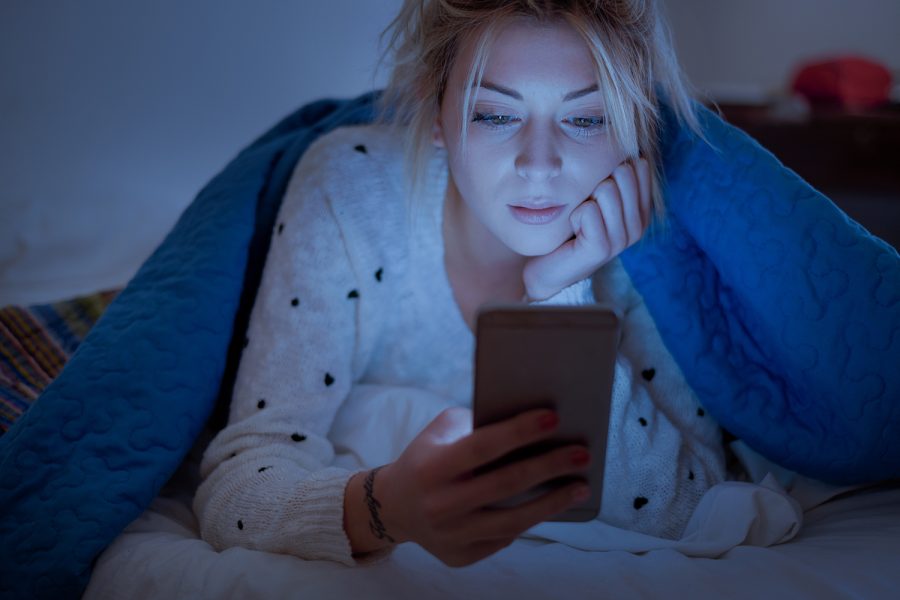The Doctor is In | Transient Smartphone Blindness, what is it?
Using your phone in the dark may lead to temporary blindness, a completely harmless phenomenon.
Disappointed sad woman holding mobile phone while laying on bed at night.
September 25, 2022
In 2016, a physician in the U.K. described two strange cases of patients who complained of intermittent blindness in one eye for several months. The patients underwent an expensive workup to no avail. This same finding has been increasingly reported in medical literature by other physicians. It turns out their phone habits might be to blame in a condition known as transient smartphone blindness (TSPB).
What habits do these patients have in common?
The answer lies in their bedtime behaviors. The patients reportedly used their phone in the dark, with one eye open and the other eye closed/blocked by a pillow before going to bed. After turning off their phone, they could see out of the eye that was covered, not the one they had been using
How do our eyes normally adapt to light?
Our eyes adjust to small lighting changes unconsciously. Occasionally, we notice our eyes adjusting, such as when we first turn off a light or leave a dark movie theater into sunlight. A chemical within our eye, 11-cis-retinal, changes when exposed to light, which allows us to see. This triggers a series of electrochemical events that create a single image and is transmitted to the brain. The 11-cis-retinal chemical needs to be recycled before it can be used again. A rapid turnover allows for eyes to continue adjusting to light.
What is transient smartphone blindness?
Transient smartphone blindness happens through a more extreme process of adapting to light. Staring at a phone with one eye for a prolonged period results in “bleaching” where the 11-cis-retinal in the eye cannot recycle in time. As it struggles to keep up, only brighter lights can reach the threshold now required to transmit the image. For example, take a person who has been staring at their phone in the dark who then turns their phone off. It is impossible to see with the eye that had been bleached, as the dark light cannot recycle the little 11-cis-retinal present. The “unbleached” eye is able to see normal.
So… what do we do now?
Fortunately, TSPB only lasts until the 11-cis-retinal is repleted. Though alarming, it is a harmless process that does not seem to cause any long-term damage. It does pose yet another reason to be mindful of phone use before bed. Despite the benign nature of TSBP, you must be mindful about the use of smartphones before bed, as it can disrupt your body’s natural sleep cycle. The National Sleep Foundation recommends all devices with a screen be switched off 30 minutes before bedtime to ensure you get the most restful sleep.
- Kristina Sevcik, she/her/hers, 4th medical student, class of 2023
Columns reflect the opinions of the authors and are not necessarily those of the Editorial Board, The Daily Iowan, or other organizations in which the author may be involved.



